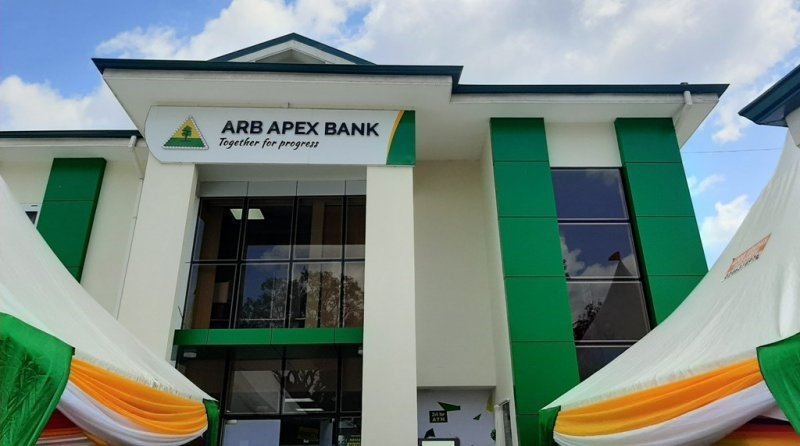
ARB Apex Bank says Rural Banks are working to reduce reported fraud cases
The ARB Apex Bank Limited, which serves as a “mini” central bank for Rural & Community Banks (RCBs) has stated that the increase in different types of fraud in rural banks is a cause for concern.
According to the Bank of Ghana’s Banks & SDI Fraud Report for the year 2020, banks and rural community banks recorded the highest cash suppression related losses in 2020.
Rural community banks lost GH¢1.69 million through cash suppression, as against a total of GH¢539,000 by banks.
The Acting Managing Director of ARB Apex Bank, Alex Kwasi Awuah, in an interview noted that key steps were being taken to reduce the incidence of fraud in rural and community banks.
He said “We currently have internal arrangements to help deal with fraud. In fact, when you go to any rural bank, they have structures in place to deal with fraud. They have internal auditors who periodically conduct audit exercise in these institutions, unearth some of these fraud issues and then draw the attention of their boards for the necessary steps to be taken,”
“We are fully aware that fraud cases have occurred in some of our banks and when they come to our attention, we take action as ARB Apex Bank. We can assure you that going forward, our systems are robust enough such that when any fraud cases occur, we are able to identify and deal with them,” he added.
The reported value of fraud recorded by banks and Specialized Deposit-Taking Institutions in Ghana in 2020 was about GH¢1 billion.
This represents an increase of over 750 per cent when compared to the reported value of fraud recorded in 2019, which stood at about GH¢115 million.
That’s according to the Bank of Ghana’s Banks & SDI Fraud Report for the year 2020.
The emergence of the COVID-19 pandemic according to the fraud report, saw customers who were not used to digital/electronic methods of making financial transactions being compelled to use them.
Consequently, some sections of the banking sector were exposed to heightened levels of fraud related risk, due to the increased patronage of electronic/digital products and services.
In total, the year 2020 recorded a marginal increase in reported fraud incidents with a minimal decrease in losses.
A total case count of 2,670 cases was recorded in the year 2020, as compared to 2,311cases in 2019, representing a year-on-year increase of about 15 per cent.
Despite the reported value of fraud rising to GH¢ 1 billion cedis, actual losses incurred as a result of fraud for 2020 stood at GH¢25.40 million, as compared to an estimated loss of GH¢33.44 million in 2019, representing a 24 per cent decrease.
In terms of the number of cases reported, fraudulent withdrawals recorded the highest rate of increase in the year under review.
Fraudulent withdrawals increased from 16 cases in 2019 to 177 cases in 2020 representing an increment of 1,006.3 per cent.
E-Money Fraud also recorded 64 cases in 2020, as compared to 14 cases recorded in 2019, representing an increase of 357.1 per cent in year-on-year terms. ATM/POS Fraud recorded 168 cases in 2020, as compared to 110 cases recorded in 2019, representing a 52.7 per cent increase in year-on-year terms.
Fraud types that saw significant increases in success rate in 2020 were ATM/POS fraud, impersonation and remittance fraud. ATM/POS related fraud accounted for 32.2 per cent of total fraud-related loss incurred in 2020 and recorded the highest loss value of GH¢8.19 million in 2020, as compared to GH¢1.26 million recorded in 2019, representing a 548.1 per cent increase in year-on-year terms.
E-money fraud also recorded a significant increase in loss value. Loss incurred through E-money fraud increased from approximately GH¢0.37 million in 2019 to an estimated GH¢1.04 million in 2020, representing a 180.0 percentage increase.
This upsurge may also be a result of an increase in use of E-Money services due to the COVID–19 pandemic. Burglary also recorded a considerable increase in reported and loss values for 2020 as compared to reported and loss values recorded in 2019.
Burglary recorded a reported value of approximately GH¢1.35 million in 2020, as compared to an approximate reported value of GH¢0.70 million in 2019, representing an increase of 97.7 per cent in year-on-year terms.
Staff involvement in the commission of fraud also experienced a significant increase, especially suppression of cash. 56 per cent of reported fraud cases and 93 per cent of reported cash suppression cases involved staff of the reporting institutions.
The Bank of Ghana went on to make a number of recommendations to help mitigate the incidence of fraud in the country.
These include the adequate vetting of contract/temporary staff of financial institutions by the Police and Bank of Ghana to help identify staff with questionable characters.
The banking industry should also take a critical look at remuneration of temporary staff according to the report.



















